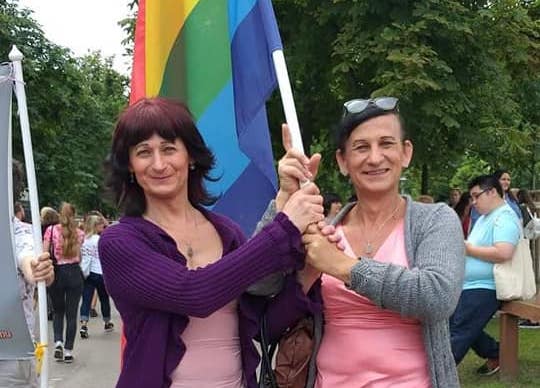Hungarian trans couple describe living in limbo after government legally erases them

Hungarian trans couple Tamara Csillag and Elvira Angyal. (Tamara Csillag/ Facebook)
A Hungarian trans couple have described their life in limbo, after the country’s government passed a cruel and devastating law to legally erase them.
Evaluations of Hungarian trans people’s applications to have their gender or name changed have been withheld since 2018, a ban was initially said to be temporary.
But last month, lawmakers in Hungary overwhelmingly voted to end legal gender recognition for trans people, preventing trans people from correcting the gender marker listed on their official birth certificates and other identification documents by amending the Hungarian Registry Act.
President Viktor Orbán’s deputy, Zsolt Semjén, first put forward proposals targeting Hungary’s trans community as part of an omnibus bill on March 31 – Trans Day of Visibility – just hours after Orbán gained the right to rule by decree indefinitely due to the coronavirus pandemic.
Article 33 stipulated that gender should be defined as “biological sex based on primary sex characteristics and chromosomes”.
Hungarian trans couple Tamara Csillag and Elvira Angyal have now been left in limbo, they told Reuters.
Csillag filed the paperwork to change her gender marker on her identity documents two years ago, but just days later the government temporarily banned her from doing so. That ban is now permanent.
Angyal changed her gender marker years before, but Csillag is still forced to write her deadname on all official documents and the couple have decided to postpone their wedding while she is still legally considered male.
Csillag said: “This slope we are on is politically conceived. The government created this abyss … It makes me so angry.”
In a statement to Reuters, the Hungarian government said that it left everyone “free to exercise their identities as they wish”.
But Csillag that she has been ostracised by her five children, who she raised before she came out as trans, that harassment forced her to leave her job and that the government is now targeting her identity.
She said: “We have fought … for future generations. We will fight on. We have to persevere.”

